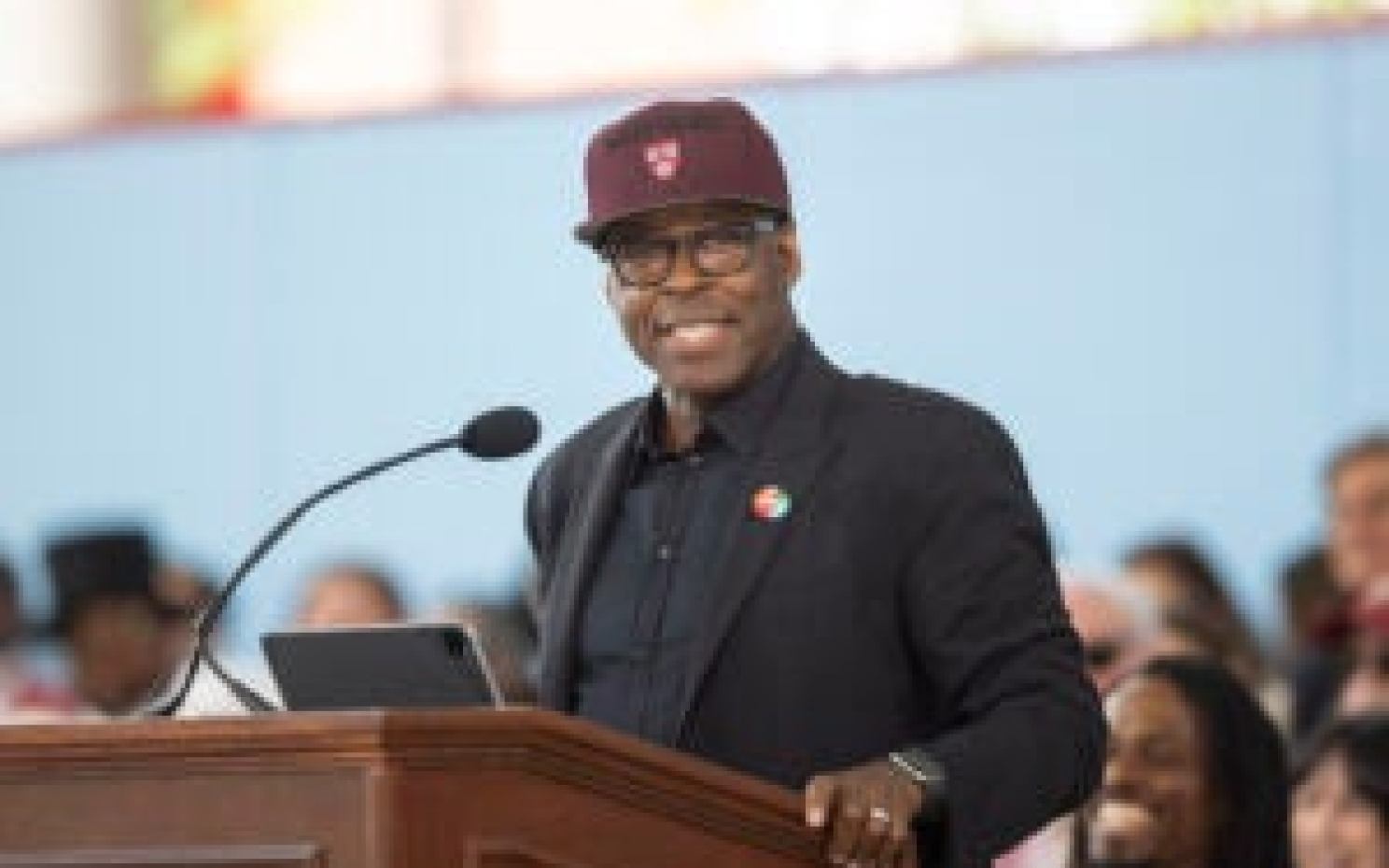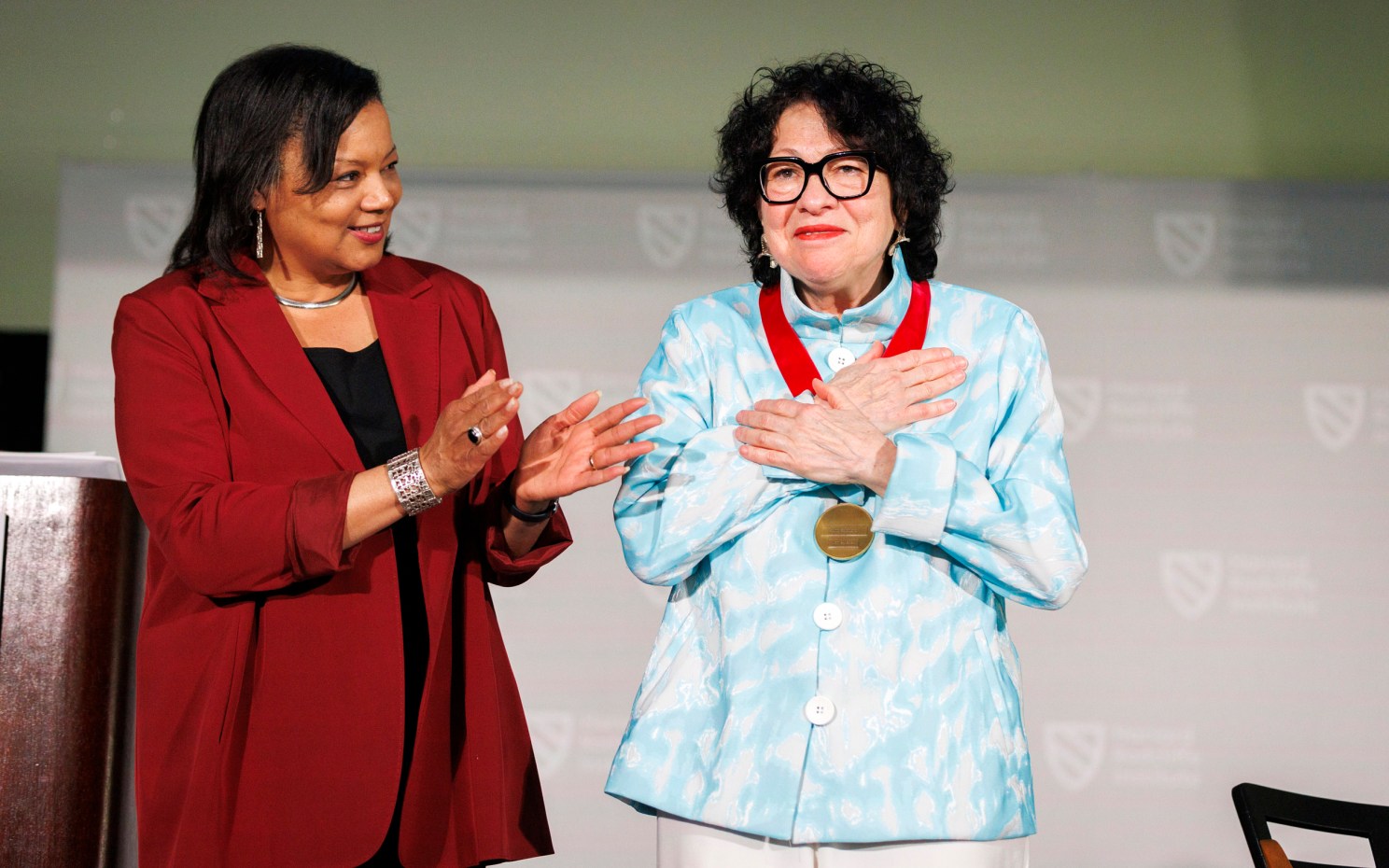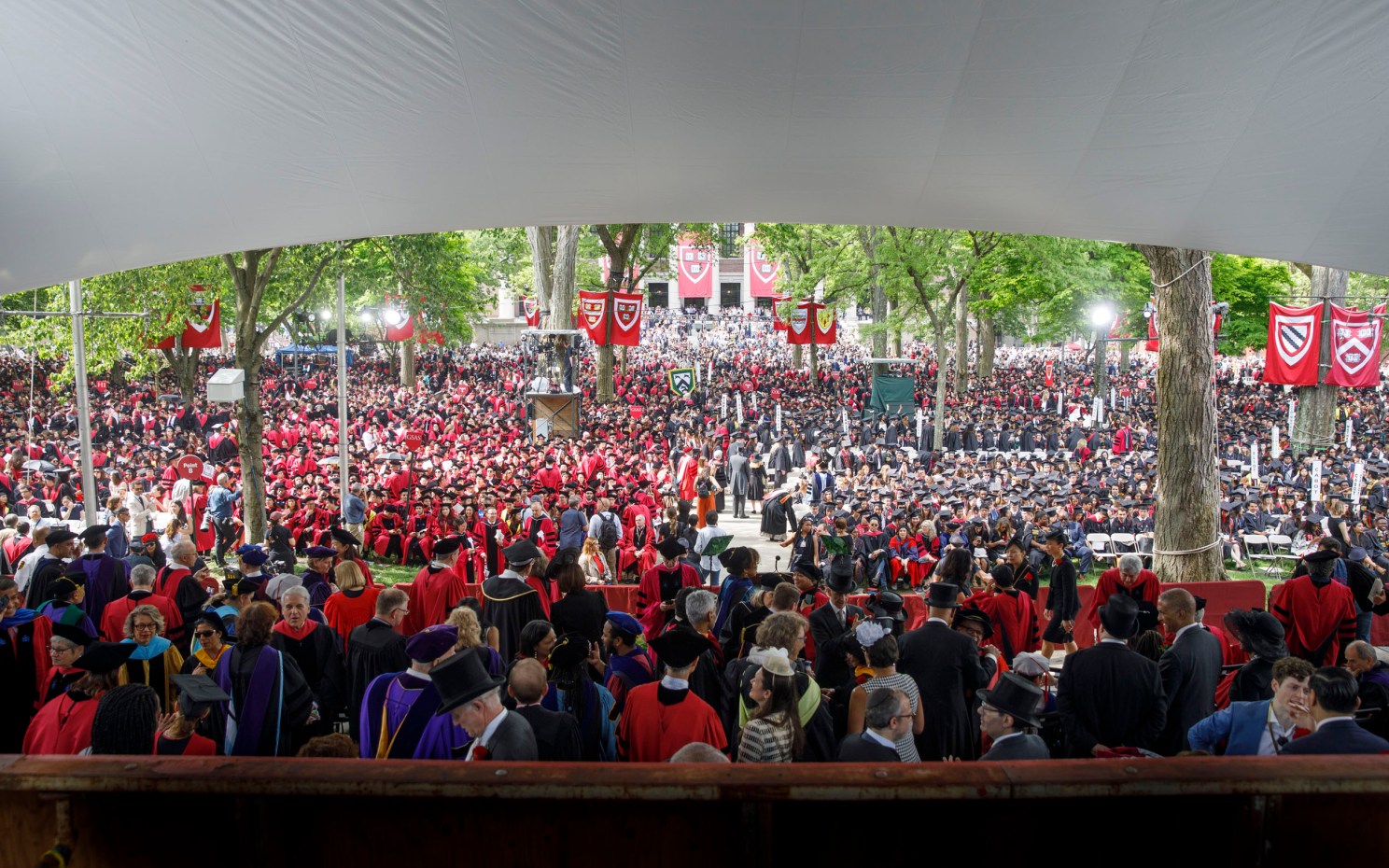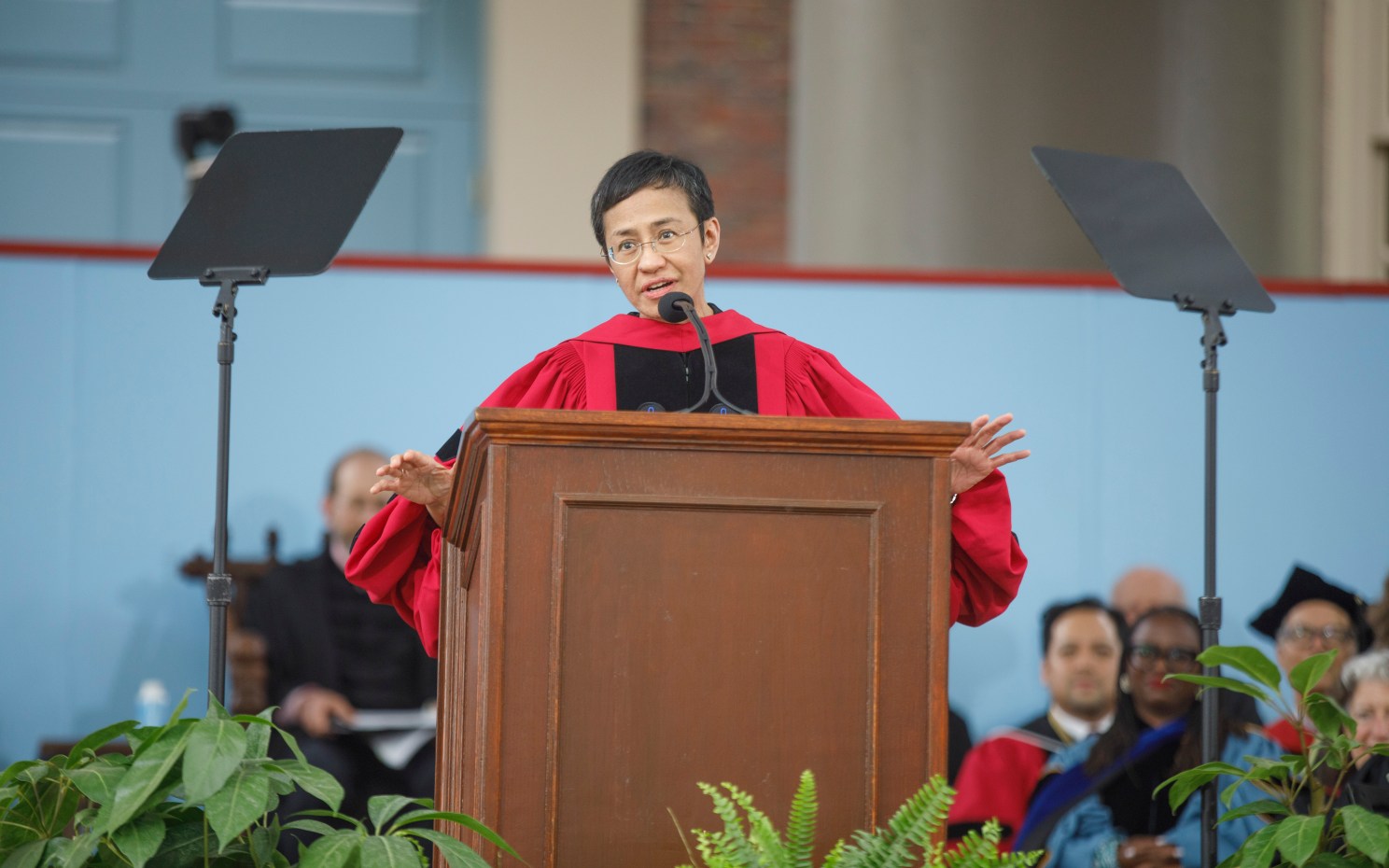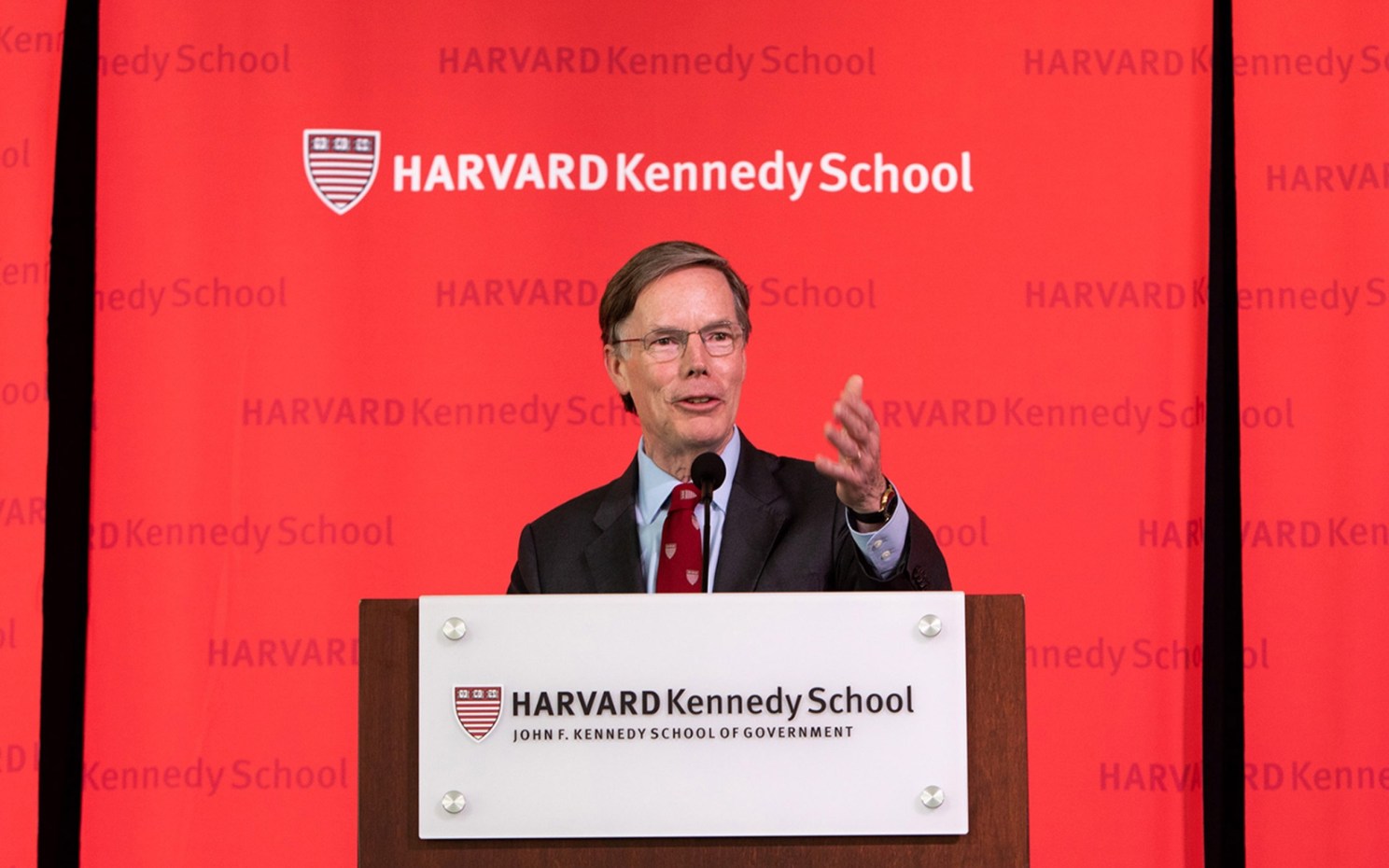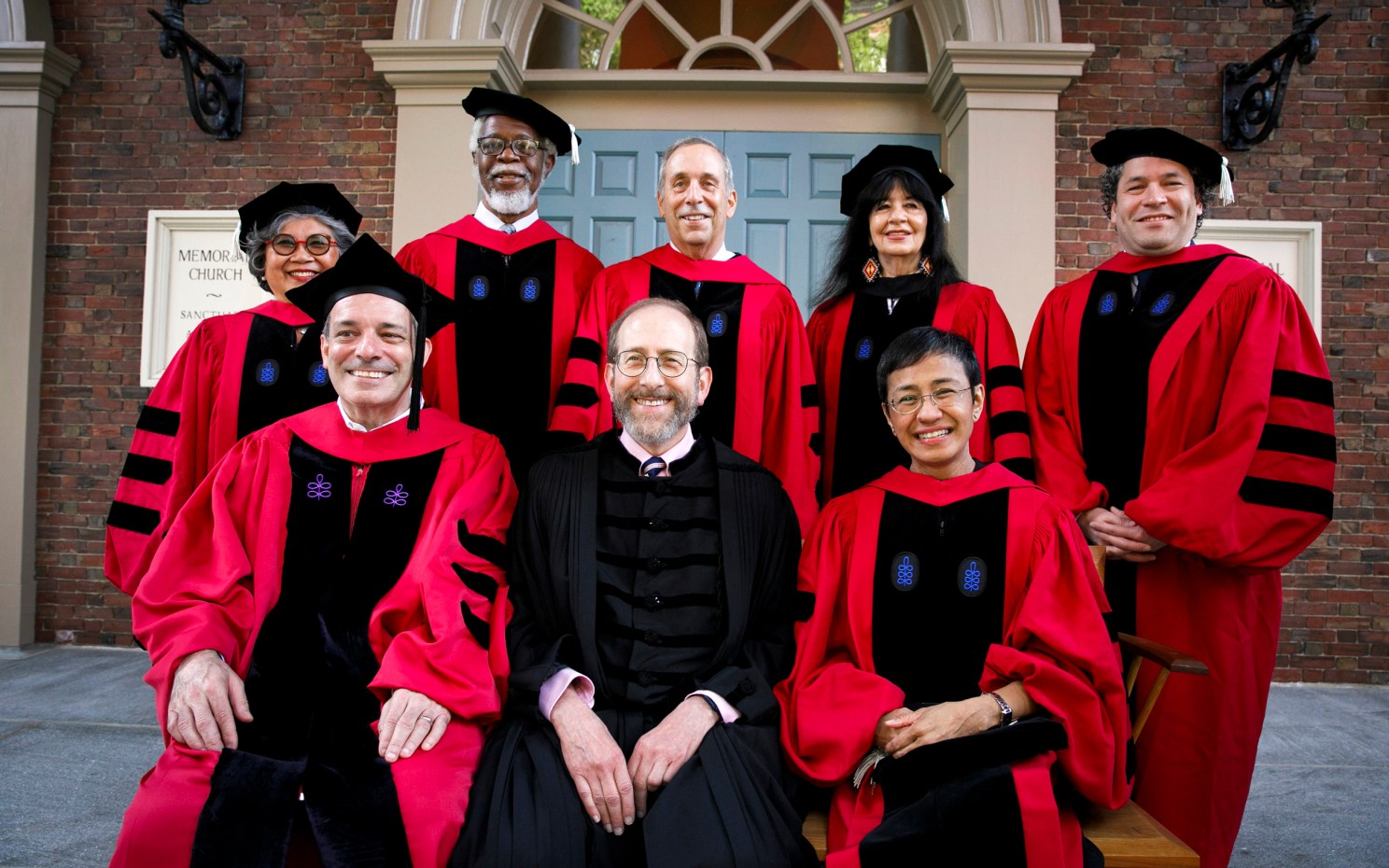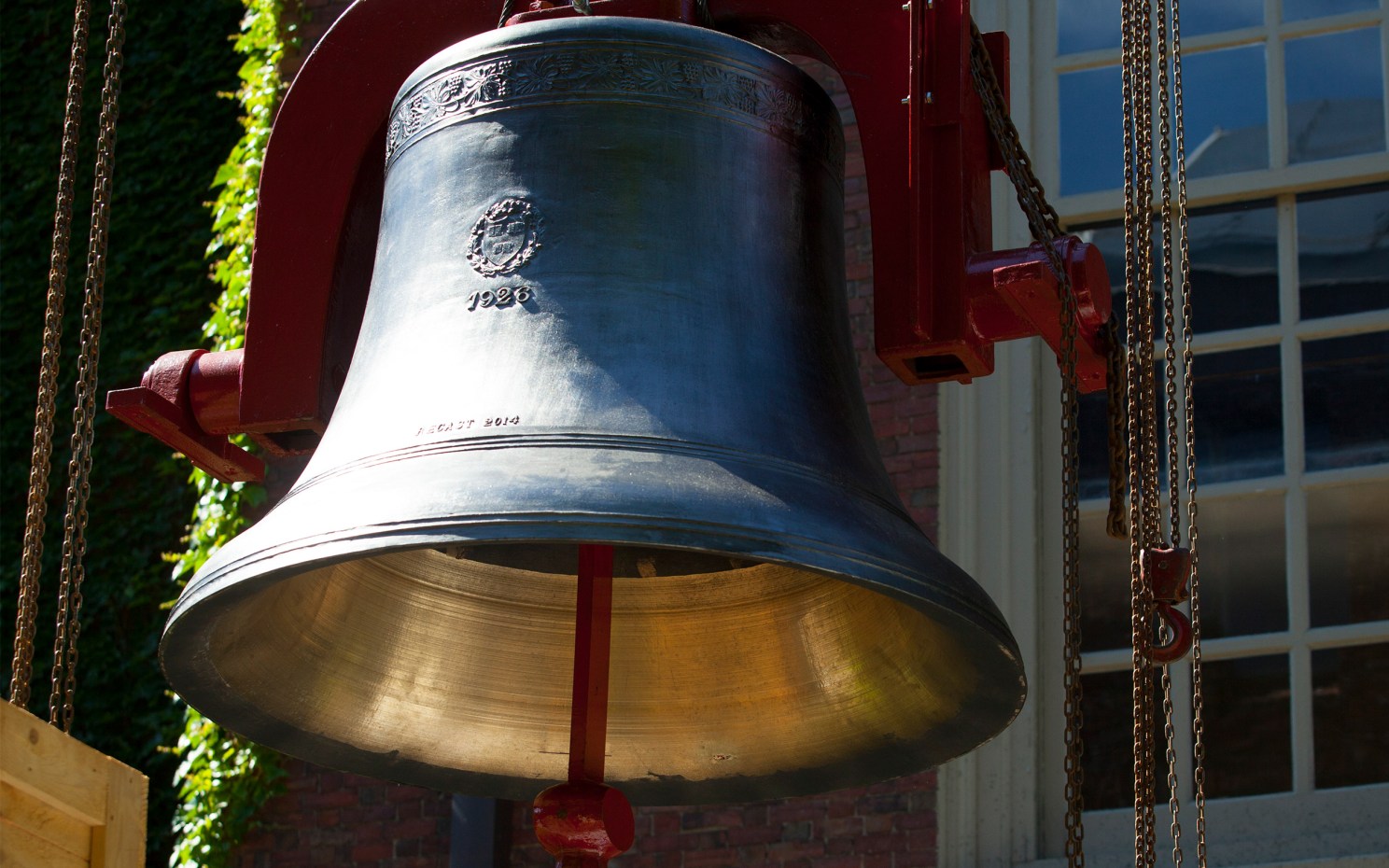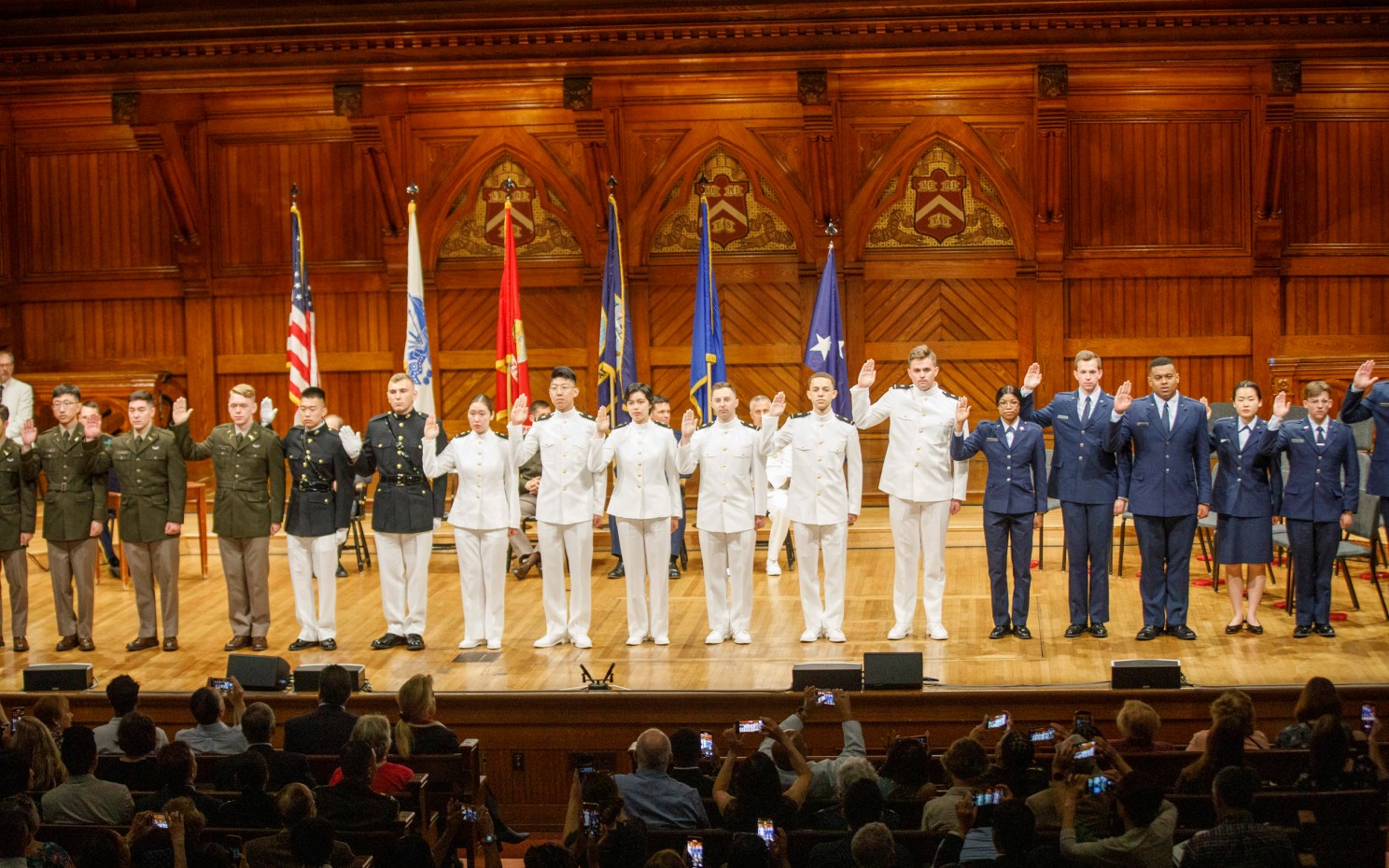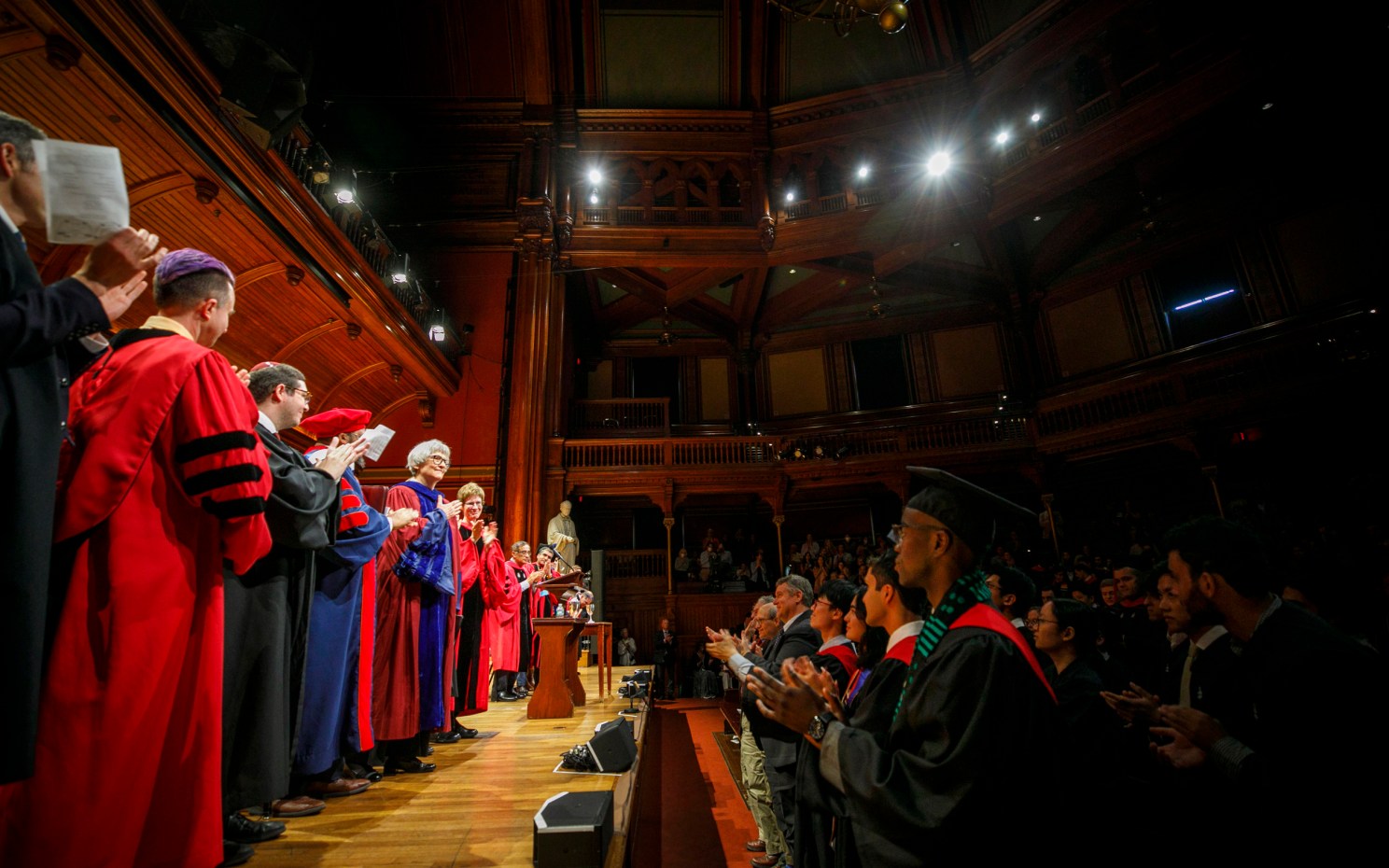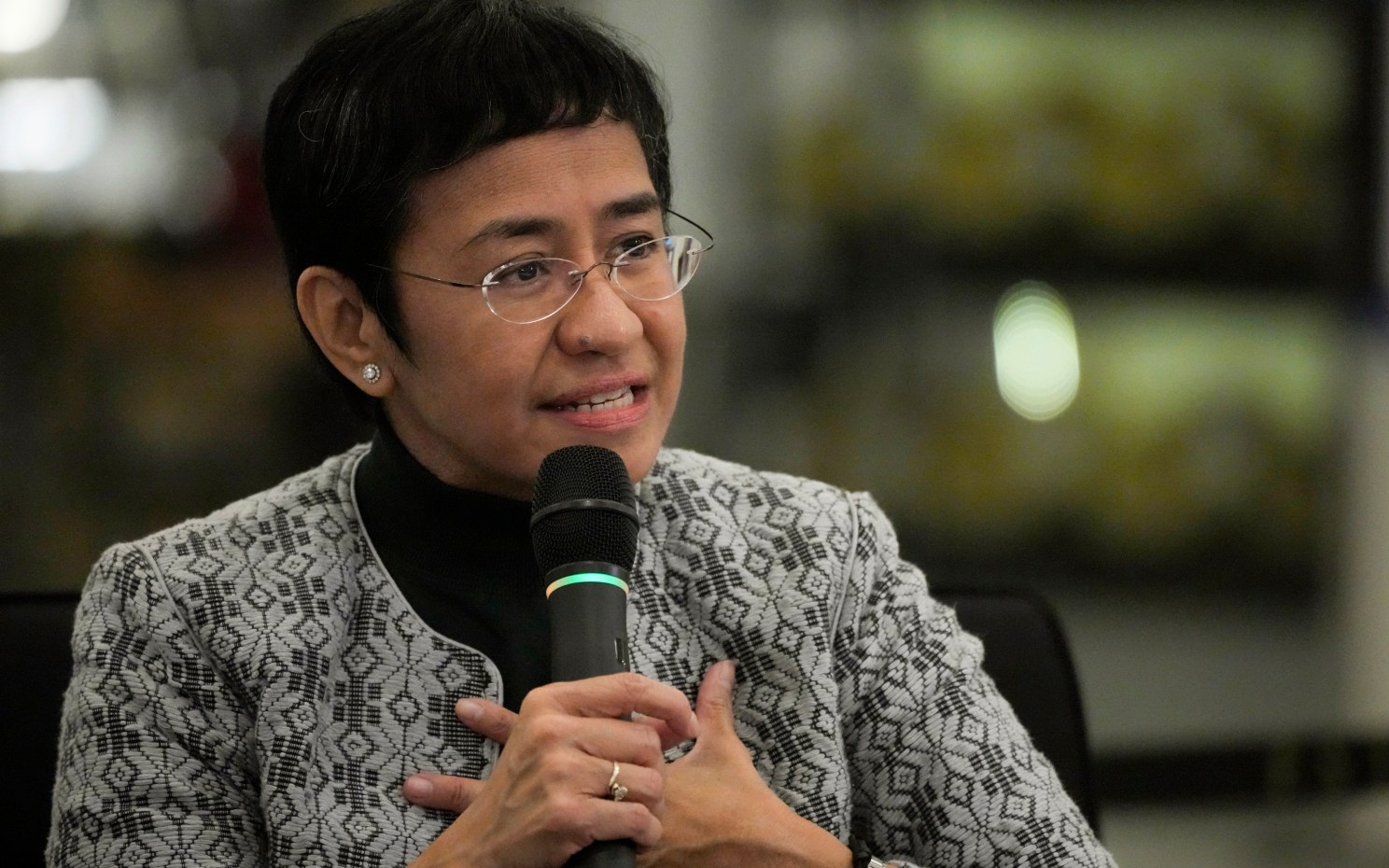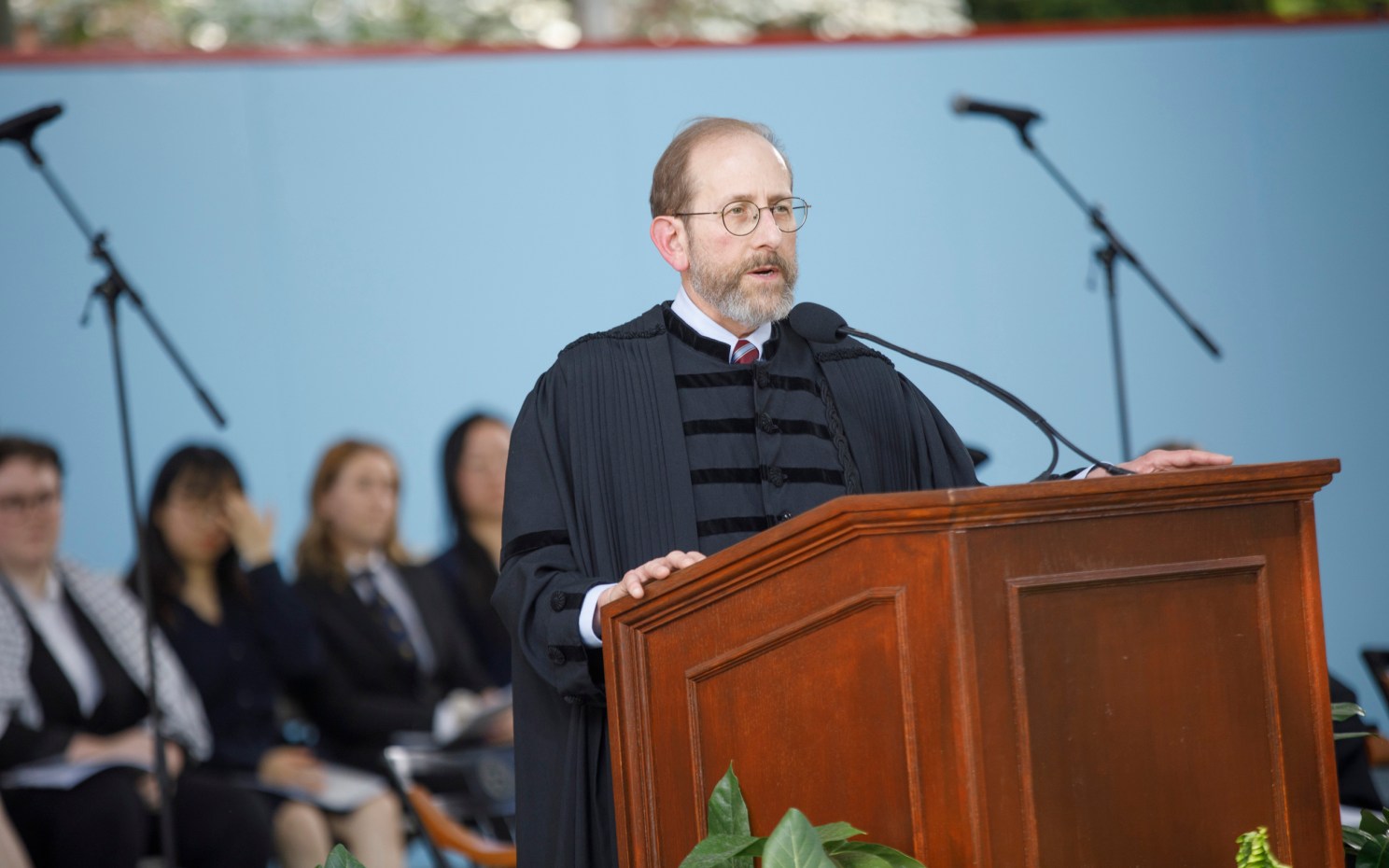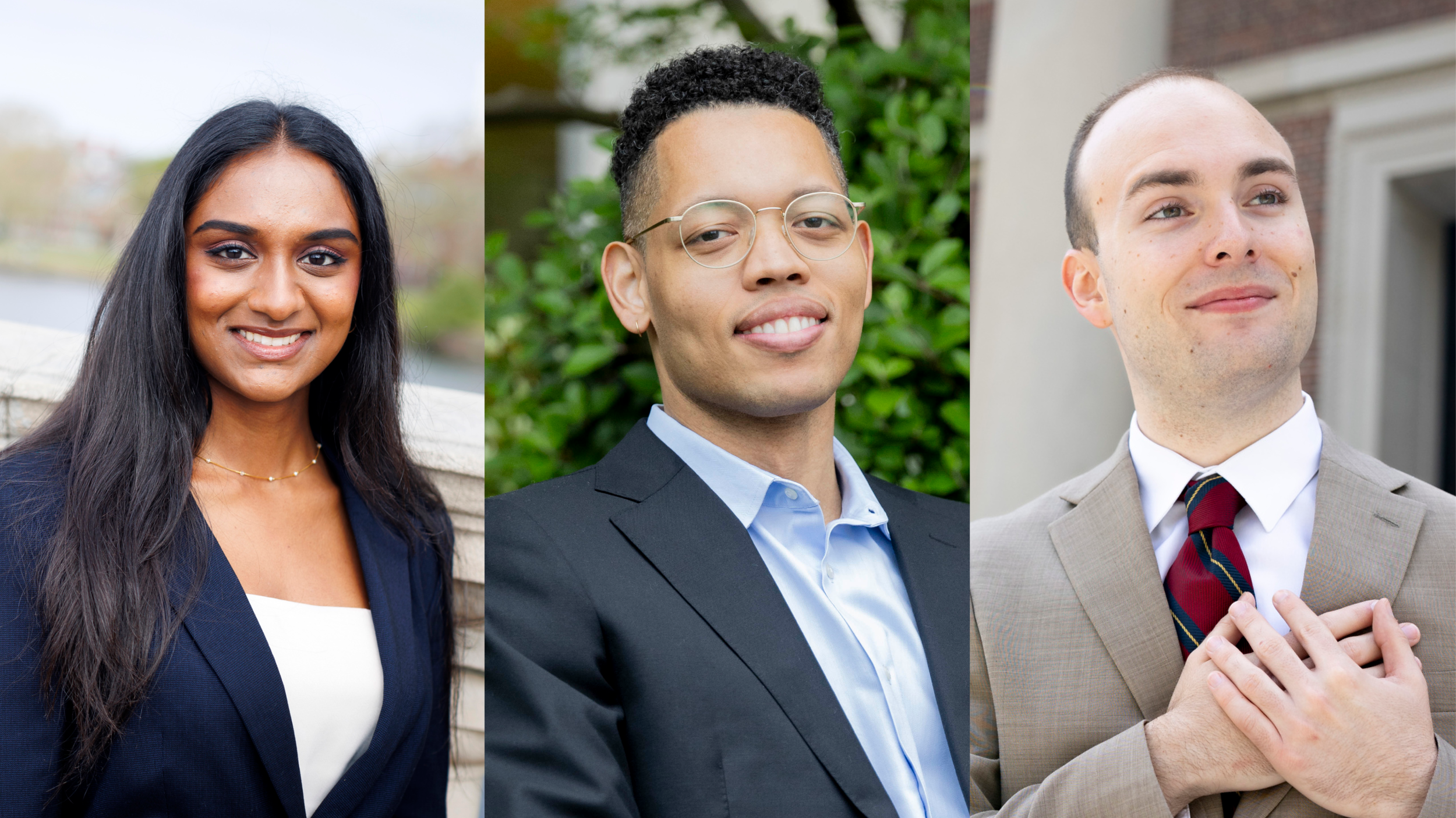
Photos by Stephanie Mitchell/Harvard Staff Photographer; Dylan Goodman; and Niles Singer/Harvard Staff Photographer
Bridging social distance, embracing uncertainty, fighting for equity
Student Commencement speeches to tap into themes faced by Class of 2024
Part of the Commencement 2024 series
A collection of stories covering Harvard University’s 373rd Commencement.
Three graduating students selected in a University-wide competition will deliver speeches Thursday at Tercentenary Theatre as part of the one of the oldest traditions of Commencement.
The student orators are Blake Alexander Lopez, a senior from the College who will deliver the Latin Salutatory; Shruthi Kumar, also a College senior, who will deliver the Senior English Address; and Robert Clinton, J.D. ’24, a Harvard Law School graduate who will deliver the Graduate English Address.
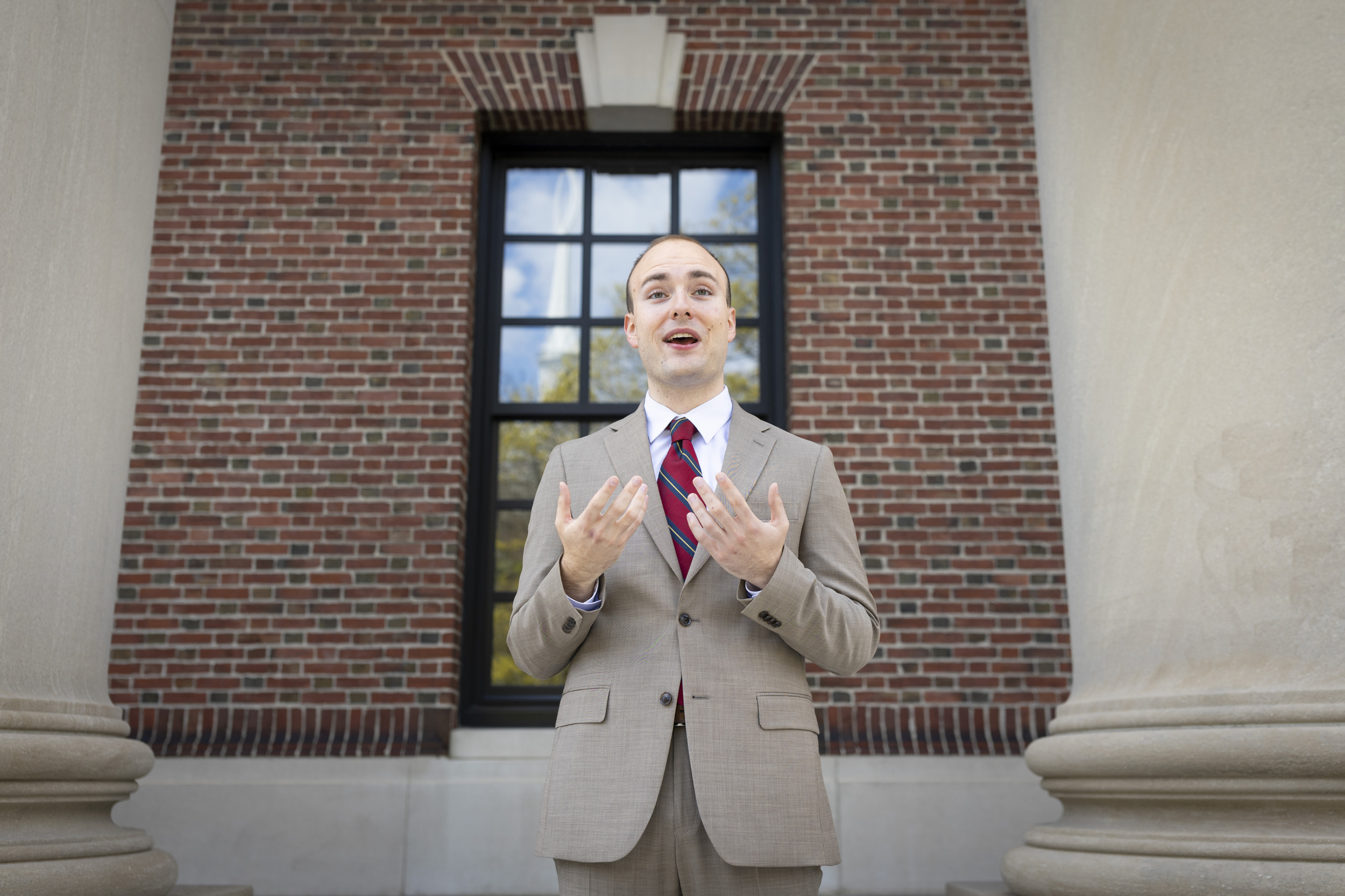
Harvard University
Overcoming those 6 feet of separation
Blake Alexander Lopez
Undergraduate Latin
When Lopez arrived on campus in the fall of 2020, six months into the COVID pandemic, first-year students could live in dorms, but they had to attend classes online and keep social distance as part of public health guidelines to slow the spread of the virus.
A joint classical languages and literature and linguistics concentrator with a secondary field in medieval studies, Lopez will address “that sort of nearer distance that we found ourselves within” in the Latin oration he will deliver during the Morning Exercises of Commencement.
“Being a student on campus in the fall of 2020 felt like we were in the proximity of all these things we had so long dreamed about, and yet there was an inherent separation between us,” said Lopez, a Kirkland House resident. “We were physically rather close, living in rooms next to each other and seeing each other on our computer screens because we had to stay socially distant.”
But as the pandemic eased its grip, members of the Class of 2024 returned to normal life and built closer relationships with one another. Celebrating graduation in person and together is a reason to celebrate, said Lopez.
“What I would like the audience to take away from my speech is that whatever difficulties were posed to us, we were able to meet them, adapt and exhibit a resilience that allowed us to thrive,” said Lopez. “There is so much our class has to be proud of, in view of what we faced. It is because what we faced, we faced together.”
Lopez, who fell in love with Latin in high school, said the language will serve him well to talk about both separation and closeness. Latin is considered a dead language because there are no native speakers. During his speech, subtitles will appear on screens in the Yard, and an English translation will be included in the program flyer.
“There’s a layer of separation between the reader of the speech’s English translation and myself delivering it in Latin,” said Lopez, who grew up in Chicago. “But being able to communicate my ideas and the feelings behind them across the linguistic boundary is reflective in a lot of ways of the fact that in spite of the barriers separating the Class of 2024 when we first arrived on campus, we were able to traverse that distance.”
At Harvard, Lopez strengthened his love of Latin and the classics. His senior thesis focused in part on ancient graffiti inscriptions found in Pompeii, which include jokes, riddles, literary quotations, and the customary “I was here.” The subject fascinates him because it provides a glimpse into the intimate relationship between Latin and the way common people made use of it.
After graduation, Lopez will pursue a master’s degree in classics at Oxford University. For now, he cherishes the fact that he was able to realize the dream he started nurturing when he was applying to Harvard.
“The fact that hundreds of years going on, we still do a Latin oration at Commencement really captivated me,” said Lopez. “I would sort of daydream about it. I’d like to go back to 17-year-old me and tell him, ‘Hey, we did it.’ Or as they’d say in Latin, ‘Vicimus.’”
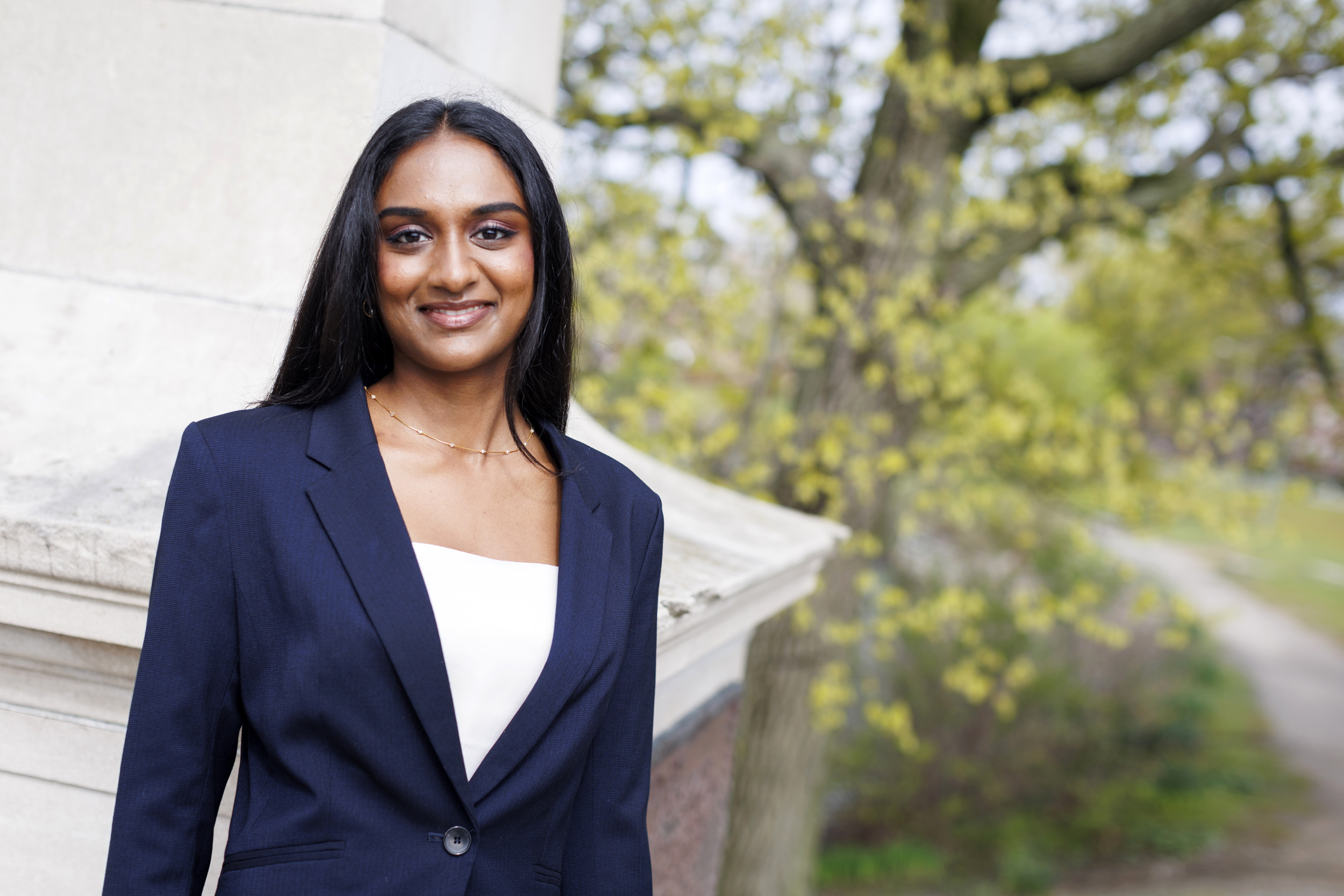
The power of not knowing
Shruthi Kumar
Undergraduate English
Kumar’s speech explores a subject she knows all too well.
Coming to Harvard as a pre-med student, Kumar took a history of science class on health disparities in the U.S., and she had a change of heart.
By embracing uncertainty, she found her passion for public health. “I didn’t know something like history of science existed,” said Kumar, a joint history of science and economics concentrator with a secondary in human evolutionary biology. “But I fell in love with that class, and I realized that history of science was what I really wanted to study to find ways to address the world’s biggest health problems.”
A Mather House resident, Kumar is glad she took risks during her time at Harvard and challenged societal and parental expectations when she switched pre-med studies for classes on health inequities and public health issues. In hindsight, Kumar said her decision made sense. After all, she had been interested in public health since high school, when she was involved in a mental health education program for youth.
In College, Kumar started a campaign to ensure that all Harvard bathrooms supply free menstrual products. Thanks to her advocacy, 817 bathrooms across the University are fully stocked with free tampons and sanitary pads on a regular basis.
Navigating the uncertainty of choosing a new career concentration could be nerve-racking, but Kumar found strength when she decided to follow her inner voice. “You’re supposed to make money, you’re supposed to have a family, you’re supposed to do this, that, or the other,” she said. “But at the end of the day, I think we owe it to ourselves to listen to that voice inside that tells us, ‘Oh, this is what I’m passionate about.’”
Kumar is confident her message will resonate with the Class of 2024, which started their first year amid the uncertainty of the pandemic. “There is a lot you don’t know in your first year, and on top of that, there was COVID,” said Kumar, who grew up in Omaha, Nebraska. “Our class had to grapple with not knowing what was going to happen in the next few years of our College experience. … We have gone through College with this chaos, and we have developed a strength to deal with uncertainty, and that’s what makes us powerful.”
The power of not knowing can be revelatory, said Kumar. After graduation, she will work on public health entrepreneurship and after that, she plans to attend law school or pursue a Ph.D.
“We are all people walking through the world, not really knowing what’s going to happen,” Kumar said. “But the power of not knowing is about how you can turn that space of fear and anxiety into something that is empowering, uplifting, and exciting. It’s a conscious shift that you must make pretty much all the time every day.”
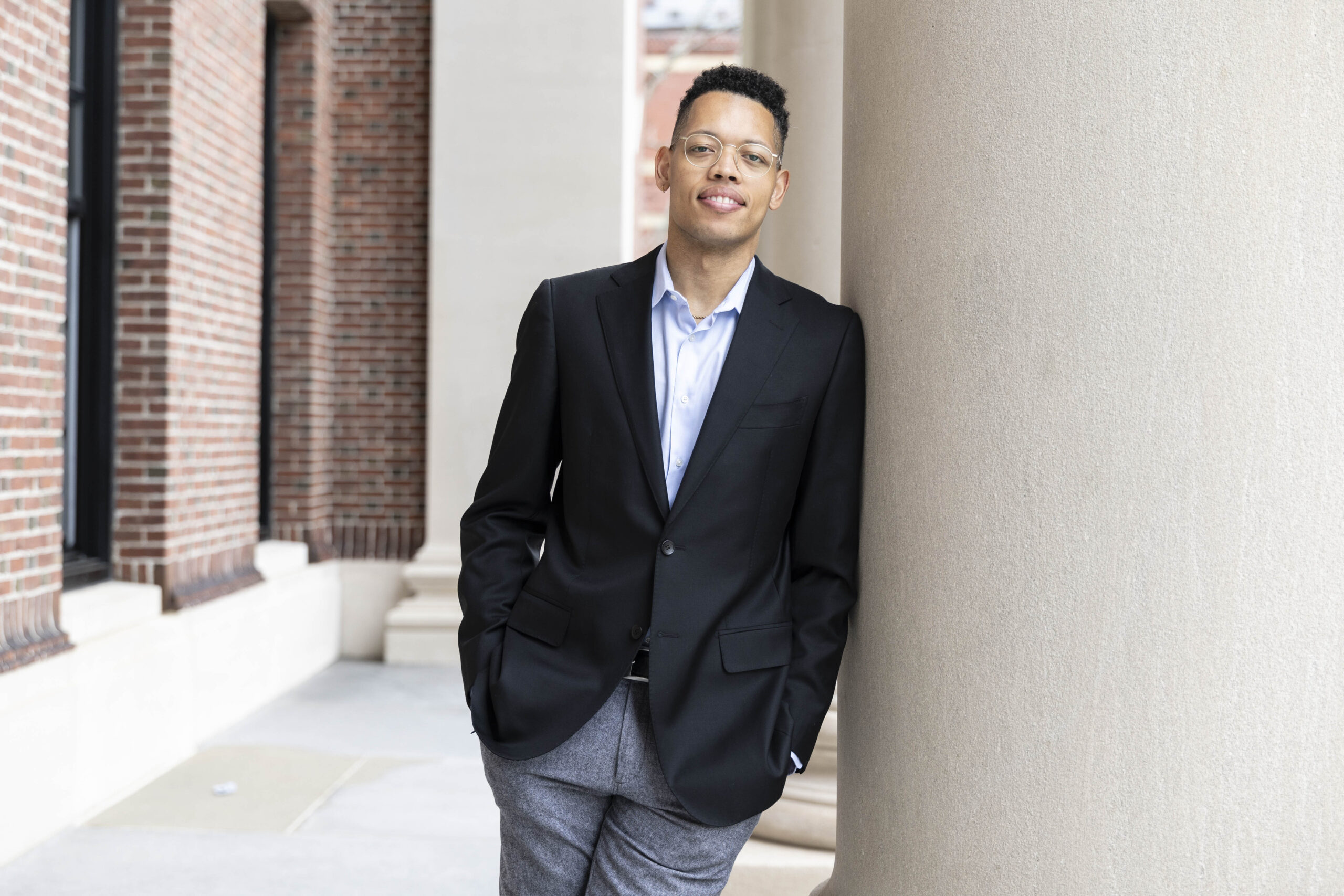
Robert Clinton, JD ’24, Harvard Law School, Orator for Harvard’s 2024 Commencement, poses for a portrait outside Widener Library at Harvard University. This is where he wrote his speech. Photo by Dylan Goodman
Harvard University
‘Working hard’ vs. ‘doing good’
Robert Clinton
Graduate English
Growing up in Richmond, California, in an African American middle-class family, Clinton felt the call to public service early on. He is not sure where it came from, but he believes that both being the child of civil servants and being Black in the U.S. may have contributed to his commitment to the common good.
In his Commencement speech, Clinton will urge students to use their privilege and power to better the lives of fellow citizens and create a more equitable society. Privilege comes with social responsibility, he said.
“Some people who graduate from Harvard are going to be presidents or senators, but most people are going to be managers, professors, and even if they are not at the very top, they will still have a lot of power,” said Clinton. “We will be people with good jobs because we went to Harvard. And that means that we must be on the lookout for opportunities to help people.”
Harvard graduates should put their education to good use, said Clinton, who found inspiration in the work of actor and activist Harry Belafonte, who used his fame to support the Civil Rights struggle. Clinton was also stirred by the words of a Law School professor who exhorted students to find something bigger than themselves and be part of it.
“There’s a difference between working hard and doing good,”he said. “People here know how to work really hard, but working hard doesn’t necessarily mean that you’re making the world better or doing your part.”
Before coming to the Law School, Clinton worked for the city of San Francisco in the Office of Civic Engagement and Immigrant Affairs. But he began thinking seriously about the law when he became involved with efforts to remove a citizenship question from the 2020 U.S. Census questionnaire. A coalition of immigrant groups challenged former President Donald Trump’s administration before the Supreme Court, which ruled in favor of the petitioners.
“I got to see how lawyers can use the law to help people and to hold people accountable,” Clinton said. “It was really inspiring.”
After graduation, Clinton will clerk for Judge Dale Ho of the U.S. District Court for the Southern District of New York. By coincidence, Ho was the lawyer representing the immigrant groups that challenged Trump’s plan to include the citizenship question on the 2020 Census. Clinton is elated over that twist of fate.
“It was the first legal case that I followed from beginning to end,” said Clinton. “I read the briefs even though I didn’t know what they meant, I listened to the oral argument, and I was shocked when against all the odds, they won the case.
“And it just so happens that Judge Ho is going to be my first boss after law school. I joked with him in the interview that he was one of the reasons why I went to Law School. It feels like a wonderful full-circle moment.”



